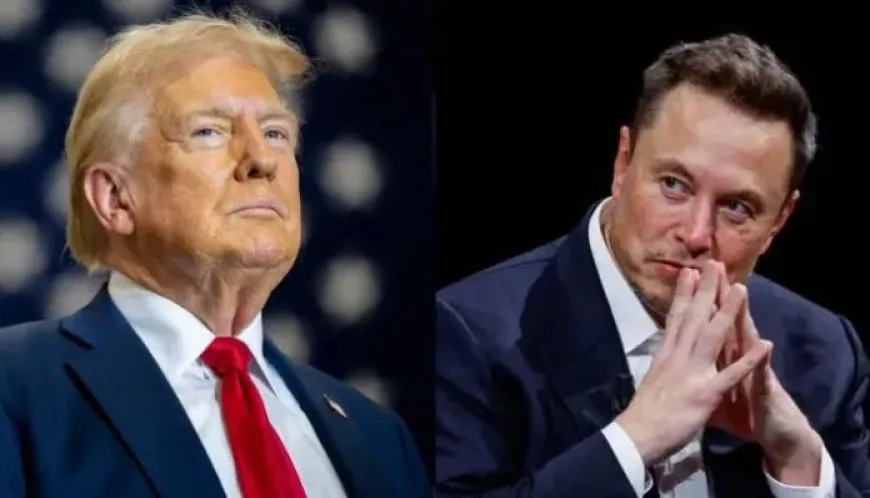Elon Musk Fails to Stop Trump’s $3 Trillion Tax Plan in Senate Showdown
Trump’s $3T tax bill gains Senate traction despite Elon Musk’s high-profile opposition and GOP infighting. Only minor changes expected.

Washington, D.C. — As Elon Musk took aim at Washington over the cost of a massive $3 trillion tax-and-spending bill, Republican leaders stayed the course. Despite the billionaire’s threats to unseat lawmakers who backed the bill, the GOP is moving full steam ahead with the legislation, with only limited changes expected before a final vote.
The drama between Musk and former President Donald Trump grabbed headlines all week. Musk slammed the bill’s price tag and vowed to politically target Republicans who supported it. But on Capitol Hill, party leaders appeared unfazed.
“We're a long way down this track,” said Senate Majority Leader John Thune, signaling little appetite for delay. “Everyone’s rowing in the same direction.”
Still, not all Republicans are on board. A bloc of fiscal conservatives — emboldened by Musk’s criticism and concerned about the growing deficit — say they may vote against the package. However, most GOP leaders, including Trump, remain aligned behind it.
Minor Adjustments, No Major Overhaul
Behind closed doors, lawmakers have been discussing small changes to the House-approved version of the bill. But those tweaks are unlikely to significantly affect its overall cost.
Two of the key proposals on the table include:
-
Reducing the SALT deduction cap: The current House bill allows a $40,000 tax deduction for state and local taxes. Some Republicans want to lower that cap, which could reduce the bill’s cost. However, this change is likely to face resistance when the bill returns to the House.
-
Making business tax breaks permanent: While the House bill includes temporary incentives for businesses—such as deductions for property depreciation, interest, and R&D—several Senate Republicans are pushing to make those permanent, which would increase the long-term cost.
Sen. Ron Johnson of Wisconsin has voiced concerns over these changes, saying he prefers to keep the incentives temporary. He’s also suggested breaking up the bill into smaller pieces, though it’s unclear if enough Republicans will support that idea.
AI Regulation Draws Attention
Another provision causing tension involves artificial intelligence. The current bill includes a ban that would stop states from passing their own AI laws for the next 10 years.
Rep. Marjorie Taylor Greene, who supported the bill in the House, later admitted she didn’t realize the AI ban was included. She has since threatened to vote no if it remains unchanged.
In response, the Senate is now considering a revised version that would tie federal broadband funding to AI regulation, rather than imposing a blanket ban. While this could ease concerns, it’s not expected to significantly affect the bill’s cost.
Possible Additions Could Raise Costs
Some provisions being debated could push the price tag even higher. One involves changes to Section 899 of the IRS code, which targets “discriminatory foreign countries.” The current language gives the president power to impose new taxes on countries deemed to be engaging in unfair trade practices. Removing or altering that section could reduce future government revenue.
There’s also concern from some senators that proposed cuts—particularly to Medicaid—go too far. Sen. Josh Hawley of Missouri warned the GOP risks alienating working-class voters. Writing in a New York Times op-ed, he asked whether the party wants to be “a majority party of working people or a permanent minority speaking only for the C-suite.”
Analysts Say Musk’s Campaign Won’t Change the Outcome
Despite the noise from Musk and others, policy experts don’t expect the bill to undergo major changes.
“This makes for great headlines and political theater,” said Brian Gardner of Stifel in a research note. “But it’s unlikely to reshape the final version of the tax bill.”
With Trump’s support and party leadership unified, the legislation appears to be on track for passage — even if a few rebels on the right vote no.
Also Read: Elon Musk Loses $34 Billion After Fight with Trump Hurts Tesla Stock































































